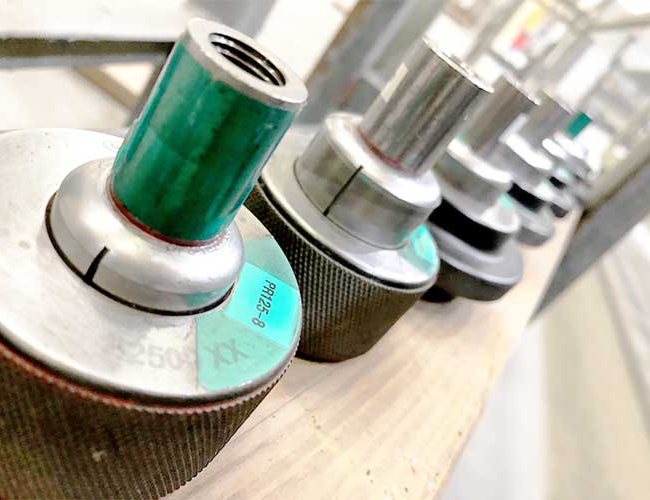Ensuring the durability and protection of metal components, particularly those exposed to extreme conditions like oil and gas pipelines, hinges on selecting the right coating solution. The immersion bath method for coating the interior surfaces of metal pipes, steel tubes, and pump assemblies stands out due to its effectiveness and uniform application.
The Superiority of Electroless Nickel Coating for Interior Surfaces
Electroless nickel plating is a method well-suited for coating the interior surfaces of pipes, tubes, and assembled parts, thanks to its unique properties. Unlike traditional electroplating, which requires an electric current for the deposition of materials, electroless nickel plating operates via an autocatalytic process. This chemical reaction facilitates uniform coating across all surfaces, regardless of their geometry. As a result, it ensures an even protective layer, effectively reaching into intricate recesses and making it particularly advantageous for complex interior surfaces.
In sectors such as oil and gas, where components frequently face corrosive environments, extreme temperatures, and high pressures, this level of precision in coating is crucial. Electroless nickel coating significantly enhances the longevity of metal parts, leading to lower maintenance costs and reduced risk of downtime caused by equipment failure.
The Role of Electroless Nickel Coating in the Oil and Gas Sector
The oil and gas industry presents one of the most challenging environments for metal components, with exposure to corrosive substances, abrasive materials, and high-pressure conditions. In such scenarios, electroless nickel coating becomes an invaluable asset. By applying a consistent layer of nickel alloy, oil and gas operations can significantly extend the service life of their equipment. This not only boosts operational efficiency but also minimizes the frequency of replacements and repairs, translating to substantial cost savings.
Specialized metal coaters in Dallas and throughout Texas provide tailored electroless nickel coatings for oil and gas pipelines. This process’s ability to deliver uniform coverage, including on interior surfaces, is a key factor that contributes to its effectiveness in combating the harsh realities of this industry.
Essential Considerations in the Coating Process
When formulating electroless nickel baths, metal coaters must consider several factors that affect the performance of the coating. Chief among these is corrosion resistance, a primary concern for components operating in hostile environments like those in the oil and gas sector. The specific ratios of nickel and phosphorus in the coating bath are pivotal in achieving the desired level of corrosion protection.
In addition to protecting against corrosion, the coating's ability to minimize friction and enhance lubricity is vital. Components such as pump assemblies and pipelines benefit from a low-friction surface, which reduces wear on moving parts and ensures smoother fluid flow. Incorporating additives like silicon carbide or PTFE into the coating can further boost lubricity, making these components more resilient under high-stress conditions.
Boron can also be introduced to the coating bath to improve hardness and wear resistance. The specific ratios of nickel, phosphorus, boron, and any particulate additives will vary based on the application requirements. For example, while oil and gas companies might prioritize corrosion protection, other industries may focus more on friction reduction.
Factors Influencing Coating Quality
Several variables impact the quality of electroless nickel coatings, including bath temperature, chemical purity, and tank size. For metal plating services near Dallas, precise control over these elements is essential for producing a consistent and high-quality finish.
The temperature of the plating bath is critical, as it affects the deposition rate of the nickel alloy. Bath temperatures that are too low can slow down the coating process, while excessively high temperatures can lead to brittleness in the final coating. Maintaining optimal temperature ranges ensures that the process operates efficiently and meets the required performance standards.
Moreover, the quality of the chemicals used in the coating bath plays a significant role in the final product's effectiveness. Impurities can cause defects, such as pitting or uneven coating. Therefore, metal coaters specializing in oil and gas pipeline coatings TX take meticulous care to use only high-quality chemicals.
Lastly, the size of the plating tank determines whether a component can be fully submerged during the coating process. For larger pipes and tubes, specialized oversized tanks may be necessary to ensure comprehensive coverage of both interior and exterior surfaces.
Conclusion
Electroless nickel coating for tubes represents an effective method for protecting metal components from corrosion, friction, and wear. This technique is especially valuable in industries like oil and gas, where equipment frequently encounters harsh environments. By carefully managing factors such as bath composition, temperature, and chemical quality, metal coating specialists in Dallas and across Texas can provide dependable, long-lasting coatings that enhance the durability of essential equipment. For industries in need of robust, high-quality coatings, electroless nickel plating offers extensive protection and improved performance across all surfaces, including the interiors of intricate components.
